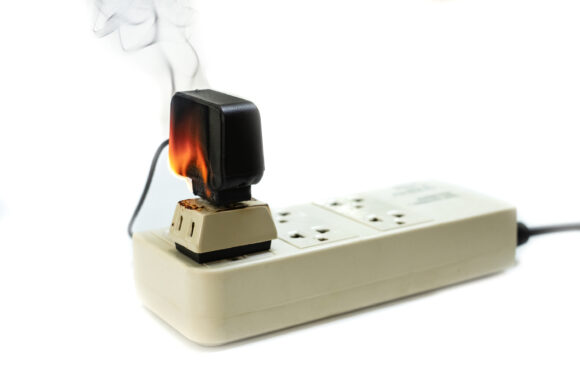Circumstantial evidence suggesting a fire that damaged four buildings in the Queens neighborhood of New York City was caused by improper use of extension cords was not enough to allow an insurer to proceed with a subrogation lawsuit, a federal appellate court ruled.
A panel of the 2nd Circuit Court of Appeals affirmed a summary judgment by the trial court against Union Mutual Fire Insurance Co. The panel said while proof of cause-in-fact is almost always circumstantial, the insurer did not present sufficient evidence to prove that the operators of Ace Caribbean Market were responsible for a blaze that caused $1.5 million in damages.
“There may have been negligence, and that negligence may have been the cause of the fire,” the panel’s opinion says. “But no inference that it was the defendants’ negligence is permissible on the facts before us.”
A fire broke out inside the Ace Caribbean Market at 110-14 Liberty Avenue on March 4, 2017 and spread to four adjacent buildings. Union Mutual paid $1.5 million for physical damage and lost business income caused by the fire.
A fire marshal determined that extension cords were the most likely cause of the fire. The grocery store used four refrigerators and freezers to display food and beverages and used power strips with surge protectors to power them.
But the fire marshal found no evidence that the extension cords were used improperly and acknowledged that the extension cords may have been defective.
Union Mutual filed a lawsuit against the market and its owner, Neera Ramdin, seeking to recover its payout. Judge Eric R. Komitee, with the Eastern District of New York, granted a motion for summary judgment in favor or Ramdin after two experts for the defendants testified that the fire department’s investigation did not conclusively lay the blame on Ace Carribbean Market. Union Mutual also engaged an expert, but did not submit a report into evidence, according to the opinion.
On appeal, the insurer argued that it had submitted sufficient evidence to show that Ramdin was negligent. The appellate panel disagreed.
The panel said the evidence submitted by the insurer did not rule out the possibility that the extension cords were defective, which would mean the manufacturer was negligent, not the owner of the grocery store.
“At most, Union Mutual therefore produced weak circumstantial evidence that something wrong with the extension cords caused the fire,” the opinion says. “But, even assuming a reasonable jury could so conclude, Union Mutual showed no evidence of negligence whatsoever on defendants’ part, and evidence of causation by itself is not evidence of negligence.”
Was this article valuable?
Here are more articles you may enjoy.


 Founder of Auto Parts Maker Charged With Fraud That Wiped Out Billions
Founder of Auto Parts Maker Charged With Fraud That Wiped Out Billions  Cape Cod Faces Highest Snow Risk as New Coastal Storm Forms
Cape Cod Faces Highest Snow Risk as New Coastal Storm Forms  China Bans Hidden Car Door Handles in World-First Safety Policy
China Bans Hidden Car Door Handles in World-First Safety Policy  One out of 10 Cars Sold in Europe Is Now Made by a Chinese Brand
One out of 10 Cars Sold in Europe Is Now Made by a Chinese Brand 